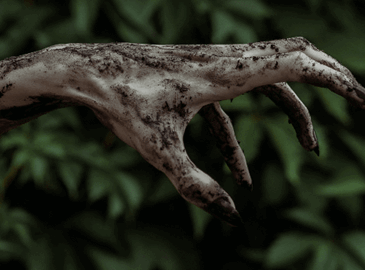Ghoulish business disasters not to emulate
You’ve undoubtedly heard about business success stories and what to learn from them.
Business Growth
When you think of Halloween, what comes to mind? Pumpkins, sweets and your house being sprayed with silly string?
What probably doesn’t stick out immediately is business. And why should it? It’s a festival with roots that go back to pagan times - long before emails, invoices and Skype calls.
But as Halloween is about celebrating scary things, we thought we should take a look at nightmarish stories from businesses and give you some top tips on how to avoid them.
Be warned, once you have seen these they cannot be unseen.
MWAHAAAAAAAAAAAAAAAAAAAA!

When it comes to business disasters, one that crops up time and time again is this little gem from 1991.
Gerald Ratner was the owner of Ratners Jewellery. Up until this point, the company had been very successful at providing affordable jewelry to the masses.
So you might be wondering what could possibly happen to completely ruin all of this? Well in a speech to the Institute of Directors, Ratner jokingly referred to his Sherry Decanter product as being “total crap”. But, amazingly, his tirade of crazy comments continued. He even said that a Marks and Spencer sandwich lasted longer than his earrings.
This really was quite an astonishing gaffe and one that has made Gerald Ratner a bit of a cult figure (albeit for the wrong reasons).
The public weren’t laughing, and decided to stay away from the jewelry stores. The value of Ratners plummeted by 500 million overnight. Unsurprisingly the company soon went bust after this.
Sometimes exercising caution is crucial. Tongue in cheek jokes might make someone feel smart, but when they have an effect like this, they are probably best avoided altogether.
Does the name Dasani ring any bells? We bet if we really pressed you might vaguely remember it. What you may not remember is what an utter disaster it was.
Back in 2004, Coca Cola decided to launch their water brand Dasani in the UK.
It had done very well in the US, so the company assumed, barring any disasters, that Blighty would take to it with as much enthusiasm. But disaster did come, in a big way.
Unfortunately the factory that had been producing the water was actually using ordinary tap water.
And to top off this Fawlty Towers-esque fiasco, it was discovered that the water may have been contaminated with carcinogenic chemicals - YIKES!
As you might expect, the product was pulled and any plans for further European expansion were halted.
So how could Coke - one of the most iconic brands in the world - make such a mistake on such a large scale? Simple, they didn’t inspect what was going on in their factory. They were ignorant to what was happening and it cost them dearly.
Businesses who make their own products must always inspect what is happening with the product, so that it is of the required standard or their customers.
When you think of what you want for breakfast, you’ll probably list typical things like toast, eggs, cereal or porridge.
You’ll more than likely want to compliment this with some orange juice or a coffee. This is the staple of a good breakfast.
But in 1989, Pepsi decided to try and change this dynamic, by introducing their own breakfast drink called Pepsi AM.
The selling point is that it had more caffeine than a typical Pepsi and would make you feel more awake in the morning.
Did it work? What do you think? By 1990, the product was discontinued, in fact it never got out of test marketing stage - which was probably a good thing.
If something sounds bad, like a can of Pepsi in the morning, then the likelihood is that it is probably an idea that should be left alone.
We are all for trying to disrupt industries, but not when it’s going to put people off their breakfast.
Here’s another trip down nostalgia lane, as we take a look at the defunct video outlet that we all have fond memories of.
Today, access to content we want to watch is seamless and instant, but back in the 80s and 90s, this was not the case.
The internet was in its infancy, so Blockbuster video outlets were very popular for short term rentals.
It’s hard to imagine now, but back in 2000, the company were offered the chance to buy Netflix. The future streaming giant said they would handle Blockbusters online component, whilst Netflix would be promoted in store.
It’s said that Blockbuster laughed the offer out the building. For a while, Blockbuster were doing fine with online rentals, up until 2007, when the company’s new CEO discontinued this. Bad move.
Within a few years, the company would cease to exist, as the video rental business model became obsolete. As you will probably know, Netflix were certainly the ones who had the last laugh.
Let this be a lesson to you. It’s always important to stay on top of upcoming trends. If you disregard something without realising how it might change your industry in the long term, you might be seriously missing a trick. Don’t become a busted Blockbuster flush by not looking at the bigger picture.

You’ve undoubtedly heard about business success stories and what to learn from them.

There are loads of fictional businesses out there, some more successful than others.
Post Office Limited T/A Payzone. Post Office Limited is registered in England and Wales. Registered Number 2154540. Registered Office: 100 Wood Street, London, EC2V 7ER. VAT registration number: GB172670502. Payzone site uses cookies. Some of these cookies are essential, while others help us to improve your experience by providing insights into how the site is being used. View our Cookie Policy and our Privacy Policy.




Cert No. 9819